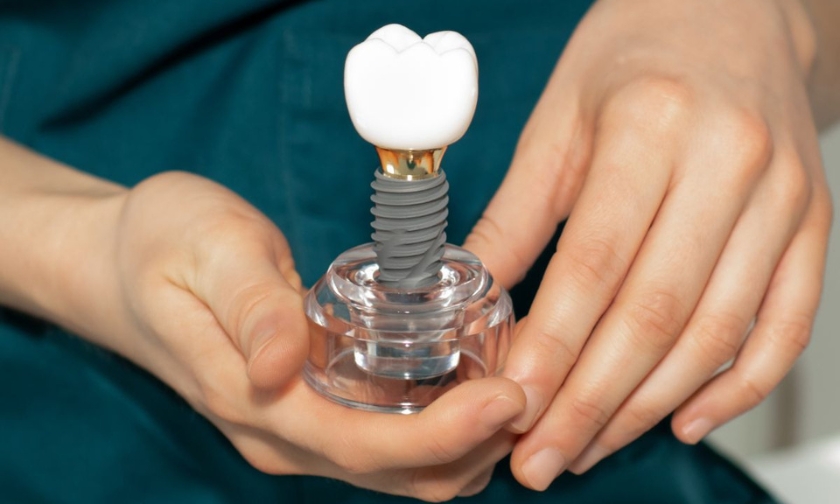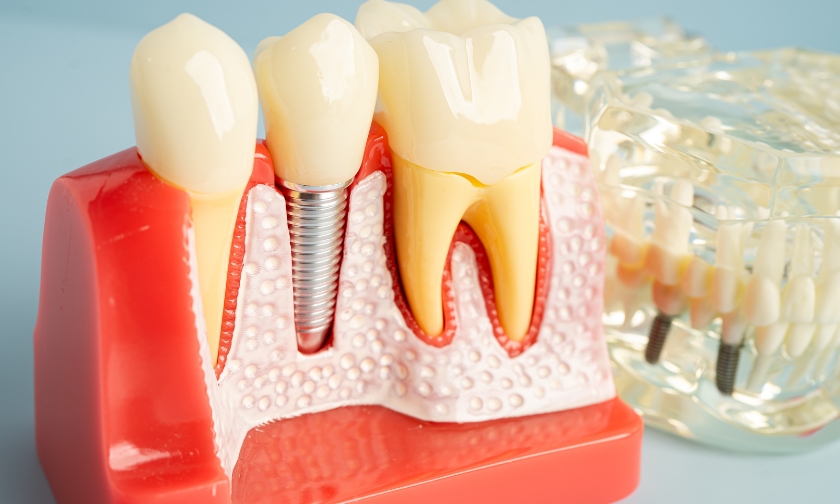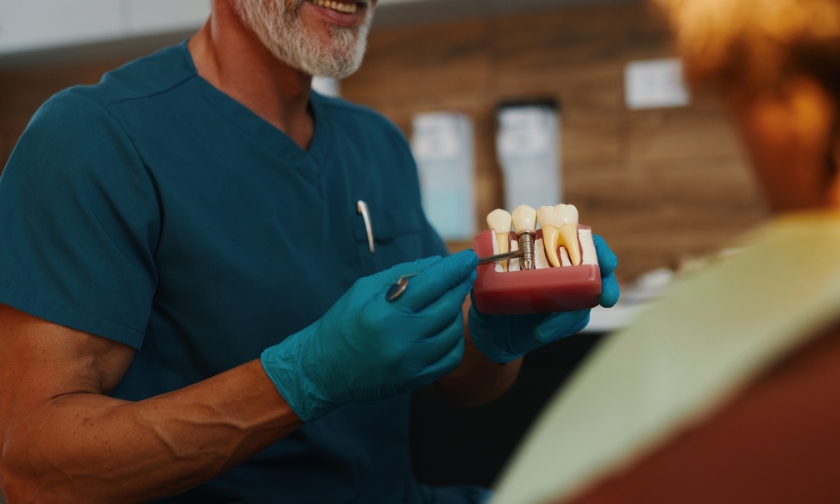
Your smile plays a crucial role not only in your appearance but also in your confidence. For many, dental imperfections can affect self-esteem. Dental implants in Newton, KS offer a transformative solution, providing a natural-looking smile and renewed confidence. This blog explores the benefits, process, and considerations of dental implants, empowering you to make informed decisions about your dental health.
Dental implants are advanced restorative options designed to replace missing teeth permanently. Unlike traditional dentures or bridges, implants mimic natural teeth both in appearance and function. They are anchored directly into the jawbone, offering stability and preventing bone loss. This secure foundation allows implants to withstand normal biting forces, enhancing chewing efficiency and restoring your ability to speak clearly.
Understanding the journey of obtaining dental implants—from initial consultation to post-operative care—is vital. This blog will guide you through each step, highlighting the benefits of this procedure and addressing common concerns. Whether you’re considering implants for the first time or seeking additional information, this comprehensive guide will equip you with the essential knowledge to start your smile transformation journey confidently.
What Are Dental Implants?
Dental implants serve as durable replacements for missing teeth, offering both functional and aesthetic benefits. They are designed to integrate seamlessly into the jawbone, providing a stable foundation for artificial teeth that look and feel natural. Here’s a breakdown of dental implants:
- Definition and Purpose: Dental implants are titanium posts surgically inserted into the jawbone to support dental prosthetics such as crowns, bridges, or dentures. They mimic the natural tooth root, providing stability and preventing bone loss.
- Types of Dental Implants: There are various types, including endosteal implants placed directly into the jawbone, and subperiosteal implants that sit on top of the jawbone under the gum tissue. Each type is tailored to specific patient needs and bone structure, ensuring optimal results for tooth replacement and restoration of oral function.
Benefits of Dental Implants
Dental implants in Newton, KS, offer a multitude of benefits beyond mere tooth replacement, making them a preferred choice for restoring both function and aesthetics. Here’s a detailed look at the advantages:
- Improved Appearance and Smile Aesthetics: Implants are designed to replicate natural teeth, providing a lifelike appearance that complements facial features. This restoration of a complete smile can boost self-esteem and improve overall facial harmony.
- Enhanced Chewing and Speaking Ability: Unlike removable dentures, implants are securely anchored into the jawbone. This stability allows for comfortable chewing of various foods without concerns about slippage or discomfort. Similarly, clear speech is maintained as implants function like natural teeth.
- Long-Term Durability and Stability: Dental implants are known for their longevity and durability, often lasting a lifetime with proper care. The titanium posts fuse with the jawbone through a process called osseointegration, creating a stable foundation that prevents bone loss and maintains facial structure.
- Preservation of Jawbone Health: Implants stimulate the jawbone, preventing bone resorption that typically occurs after tooth loss. This helps maintain facial contours and prevents the appearance of premature aging.
- Convenience and Comfort: Unlike removable dentures, implants eliminate the need for adhesives or daily removal. They become a permanent part of the mouth, providing convenience and comfort similar to natural teeth.
Process of Getting Dental Implants
Getting dental implants involves a well-structured process that ensures successful integration and functionality. Here’s a breakdown of what to expect:
- Consultation and Treatment Planning: This initial step involves detailed discussions about your dental history, current oral health status, and goals for implant treatment. X-rays and CT scans may be taken to assess bone density and determine the optimal placement of implants.
- Surgical Procedure and Implant Placement: During the surgical phase, titanium implant posts are precisely placed into the jawbone beneath the gumline. This procedure is typically performed under local anesthesia to ensure comfort. In some cases, temporary restorations may be provided to maintain aesthetics and function during the healing phase.
- Healing and Osseointegration Phase: Following implant placement, a period of healing is necessary for osseointegration—where the implants fuse with the surrounding jawbone. This process can take several months, during which temporary restorations may be replaced with permanent ones once the implants have integrated fully.
- Placement of Abutment and Final Restoration: Once osseointegration is complete, abutments—connectors between implants and prosthetic teeth—are placed. This step allows for the attachment of custom-made crowns, bridges, or dentures. These restorations are carefully designed to match the shape, color, and function of natural teeth, providing a seamless and durable solution.
Success Rate
The success of dental implants depends on several key factors that influence their longevity and effectiveness:
- Bone Quality and Quantity: Sufficient bone density and volume are crucial for implant stability and integration.
- Overall Health: Good overall health and the absence of conditions like diabetes can enhance healing and reduce the risk of complications.
- Implant Placement: Precise placement ensures optimal support and alignment with adjacent teeth.
- Oral Hygiene: Maintaining excellent oral hygiene habits reduces the risk of peri-implant diseases and promotes long-term implant health.
- Smoking: Smoking hinders healing and increases the risk of implant failure.
These factors, when managed well, contribute to high success rates for dental implants, often exceeding 95% over a ten-year period when properly cared for and monitored by dental professionals.
Aftercare and Maintenance of Dental Implants
Maintaining the longevity and health of your dental implants requires proper aftercare and consistent oral hygiene practices. Here’s what you need to know:
- Post-Operative Care: After implant surgery, follow post opinstructions carefully. This usually includes taking prescribed medications, avoiding hard foods, and maintaining a soft diet for the first few days. Ice packs can help reduce swelling while rinsing with salt water, which aids in keeping the area clean.
- Regular Dental Visits and Hygiene Practices: Schedule regular check-ups with your dentist to monitor the implant’s health and ensure everything is healing correctly. Brush and floss daily, using a soft-bristled toothbrush and non-abrasive toothpaste. Consider an antimicrobial mouth rinse to prevent infection and keep the gum tissue around the implants healthy.
Investing in dental implants in Newton, KS, not only restores missing teeth but also boosts confidence and improves oral health. With their natural look and durability, implants offer a long-term solution for a beautiful smile.


